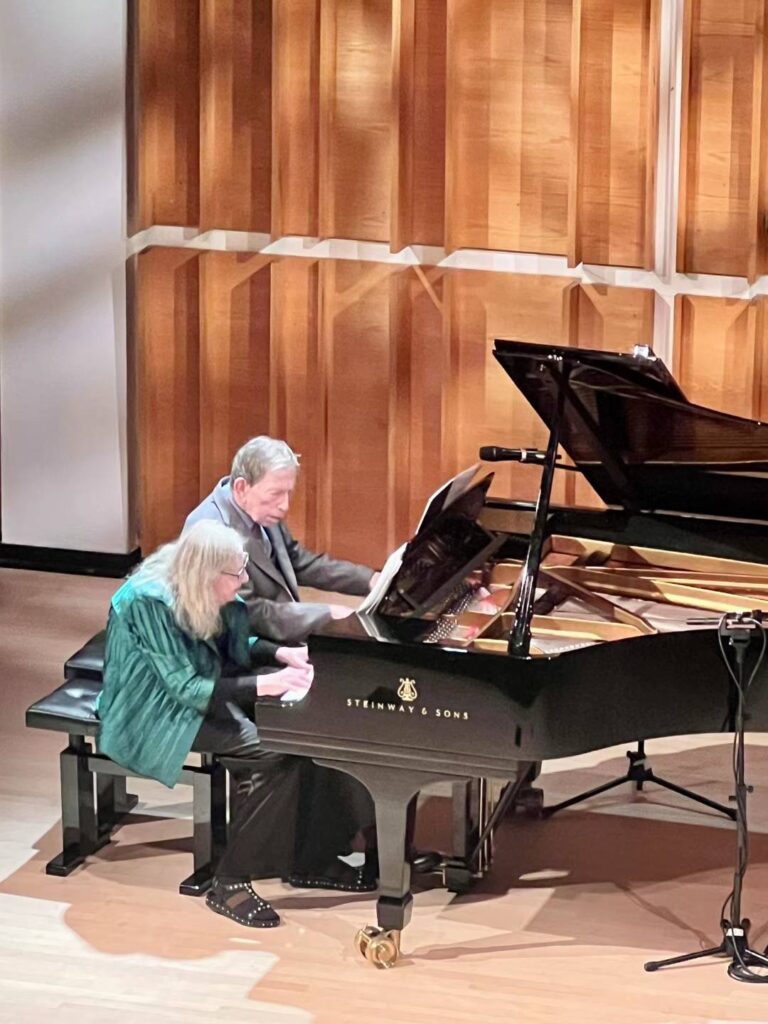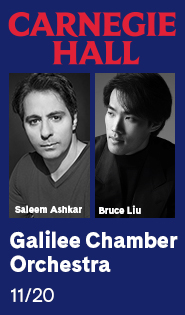Oppens marks 80 years delightfully with friends and music

Pianist Ursula Oppens has been one of the most important voices in contemporary American music for the past 50 years. She has commissioned and premiered music from some two dozen composers, and behind the scenes she has taught generations of young musicians. She turned 80 this past Friday, and Saturday afternoon in Merkin Hall she held a public party that featured a concentrated display of her legacy.
Oppens and seven other pianists, including her long-standing four-hands piano partner Jerome Lowenthal, played music from eight different American composers, all written for her, and in the company of pianists who were either present or former students or musical colleagues. Varied in concepts and styles, the concert was one delight after another.
The core of Oppens’ repertoire is the American modernist tradition, and that was on the program with the opening performance by her of Tobias Picker’s Old and Lost Rivers, followed by Carl Patrick Bolleia playing Charles Wuorinen’s The Blue Bamboula, and later Steven Beck playing Elliott Carter’s Two Diversions.
Oppens’ spirit and her technique at the keyboard show no concessions to age. She beams with a sense of welcoming delight, and the tender lyricism of Old and Lost Rivers, a juxtaposition of regret and peacefulness, came through with a limpid simplicity. It was a gorgeous opener that transfixed the hall. Bolleia, a former Oppens student, tackled Wuorinen’s complex, gnarly, and often bombastic piece with a balance of precision and power. Even as one feels that Wuorinen can get lost in the minutiae of his own concepts—including fractal geometry and polyrhythms that have no clear beat—Bolleia’s playing was impressive in both technique and commitment to what the music tries to say.
The spectacular young pianist Han Chen brought a telling and exciting contrast with Conlon Nancarrow’s Two Canons for Ursula. This music is not just polyrhythmic but poly-tempo, and Chen fit the multiple lines together with amazing transparency, accents forceful and in all the right places, the pulse clear. Nancarrow’s music sits at the beguiling and invigorating threshold of comprehensibility, and it was mind-boggling to hear it live, with such exactitude and energy.
Matthew Griswold played John Corigliano’s Winging It. The composition began as a series of improvisations by the composer, transcribed and edited into notation. The music is marvelous, full of expression, colorful harmonies, exciting fast passages. It’s part of Griswold’s repertoire, and his mastery is such that his playing had the spontaneous feeling and sense of surprise of a real-time improvisation. This was perhaps the peak of the afternoon.
Beck, one of the finest pianists on the current New York music scene, delivered a scintillating performance of Two Diversions. He had the type of command that comes from a musician not just handling the notes but understanding the point and purpose of the piece. Current Oppens student Ice Wang played Joan Tower’s Or Like a…an Engine, a short, physical sprint up and down the keyboard, and she made it sound easy.
The penultimate work was Tania León’s Mistica, played by Natasha Gwirceman. As knotty as Wuorinen but much more emotionally expressive and outward looking, the music is emblematic of the composer, with subtle underpinnings of Afro-Cuban rhythms and high modernist phrasings and sonorities. Gwirceman brought together the long, propulsive lines and the stabbing points and chords with both agility and intellectual skill.
Oppens returned and Lowenthal joined her for Michael Stephen Brown’s 12 Blocks, both the most recent and most unusual piece on the program. Not only for piano four-hands (and in the middle, the pianists switched places), it has brief spoken word passages. As abstract as that may seem on paper, the piece represents Lowenthal’s daily pandemic practice of walking the 12 blocks to Oppens’ apartment, all the while reciting poetry to himself.
This came across as a lovely sequence of gentle musical and textual aphorisms, fragments from Paul Verlaine, Keats, and Andrew Marvell, a musical quote from “Clair de lune” and phrases that evoked the romantic era, all brought together by a regular chord that marked each of the 12 blocks. Like Oppens, Lowenthal was full of easy energy and charm, and despite a lot of seemingly awkward hand and arm crossing, the pair played this with the relaxed charm and sense of pleasure of the two old friends and musical partners they are.




Posted Feb 04, 2024 at 1:58 pm by Judith Norell
What a beautifully detailed and expressive review of an important concert. Thank you.